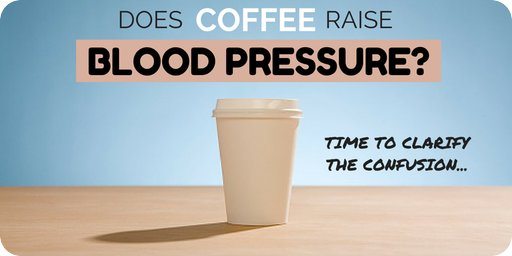
IMPORTANT: This information is intended to support, not replace, discussion with your doctor or healthcare professionals. They may be able to give you advice on the best course of action to take. Consult your physician if you're experiencing side effects from Caffeine. You'll still be able to enjoy your daily coffee routine without suffering any unfavourable effects. Decaf coffee may be suggested if you have trouble managing your blood pressure.

ConclusionĬoffee contains a wide range of chemicals besides Caffeine, which could explain why it hurts blood pressure. This may be a result of the manufacturing process decaffeinated coffee goes through. Incredibly, caffeinated coffee did not carry the same health danger. 2002) study, Rheumatoid arthritis was more prevalent in people who drank decaf coffee. Regular coffee, on the other hand, has been linked to more severe symptoms of gastroesophageal reflux WENDL et al., (2007) Could Exacerbate Rheumatoid ArthritisĪccording to ( Mikuls et al. Excessive consumption may result in acidity symptoms. Gastrin is the hormone responsible for causing stomach acid to be released. Might Be Acidifyingĭecaffeinated coffee has been shown to raise serum gastrin levels Coffey et al., (1986). Discovered that chlorogenic acid inhibited the absorption of nonheme iron. Other Effects Of Taking Decaffeinated Coffee May Prevent Absorption of IronĬhlorogenic acid is present in both regular and decaffeinated coffee. However, drinking 1–3 cups of coffee daily had moderate risk. According to another study, more than three cups of coffee a day was not linked to an increased risk of hypertension. Only those who drank coffee infrequently reported an increase in systolic blood pressure. Other studies have shown that the amount of coffee a person consumes impacts their blood pressure (Zimmermann-Viehoff et al., 2015). Even though the spike in blood pressure was only transient, it was still detectable three hours later Mesas et al., (2011). (2015) concluded that the blood pressure of 40 healthy habitual coffee consumers rose slightly with all coffee kinds but remained below normal limits.

The analysis concluded that, despite prior reports linking coffee consumption with hypertension, more recent studies suggested that 3–4 cups of coffee a day either had a neutral or favourable effect. Coffee and Blood pressureĪccording to Chrysant (2017), people with high blood pressure should exercise caution when drinking coffee, but eliminating it is unnecessary. It should be emphasized, though, that one of the three prior studies they cited found no correlation between drinking decaffeinated coffee and an increased or decreased risk of heart failure McCusker et al., (2006). (2006) assert that there is also a positive correlation between lower heart failure risk and consumption of more coffee, which was partially due to Caffeine. Decaffeinated Coffee and Heart FailureĪccording to one study, decaffeinated coffee appears to considerably increase the risk of heart failure compared to regular coffee. Decaf coffee is an excellent option for those who appreciate coffee but don't want to deal with the negative side effects that come with consuming it. Decaffeinated coffee has a positive effect on the liver. However, according to the research, other compounds in coffee may impact your day-to-day functioning. Decaffeinated coffee, like caffeinated coffee, has been demonstrated to favour mood and general attention span. Decaffeinated coffee's health benefits can be compromised by adding sugar, milk, syrups, and other additives. Compared to other coffee types, black decaf provides the most health benefits. Caffeine consumption can have the following side effects on people susceptible to it: Anxiety, Insomnia, and Increased blood pressure. However, that doesn't imply you have to stop drinking coffee. There are various reasons to reduce your caffeine intake. Advantages Of Decaffeinated Coffee Over Regular Coffee What you need to know before drinking decaffeinated coffee is detailed below. In some ways, it's a less harmful substitute for coffee, but it has its risks.

According to numerous research, decaffeinated coffee consumption has been linked to an increased risk of heart attack and myocardial infarction. Despite this, it's necessary to be mindful of the negative consequences of decaffeinated coffee. However, for people who are concerned about their health, decaffeinated coffee or herbal tea can be an option. Many coffee drinkers at home or in a café begin their days with a hot cup of coffee. Nevertheless, more research is needed to back up this claim. According to some research, drinking decaffeinated coffee can raise blood pressure and cause an increase in the risk of heart disease.


 0 kommentar(er)
0 kommentar(er)
